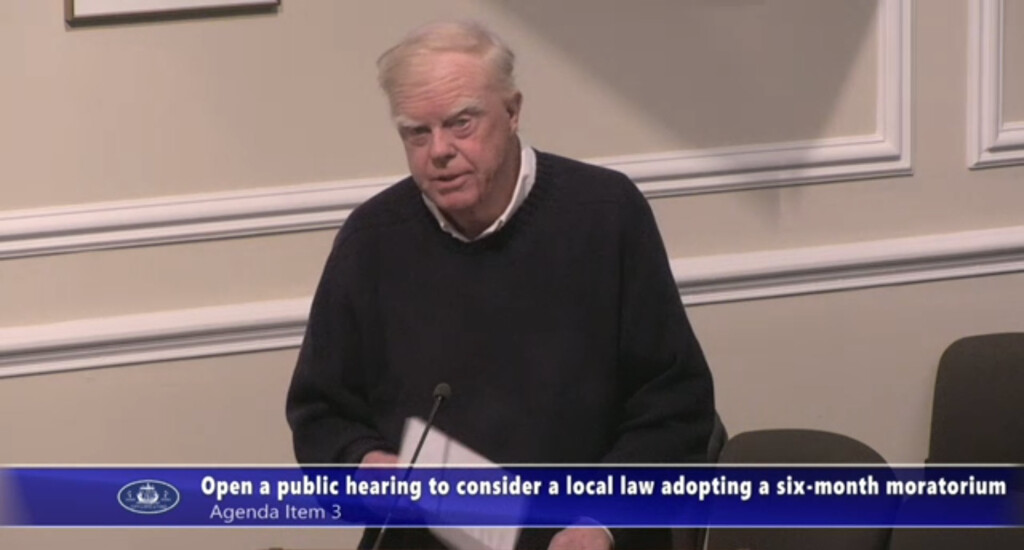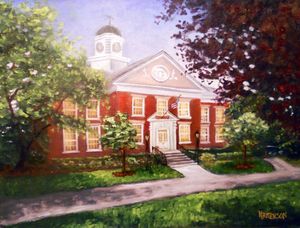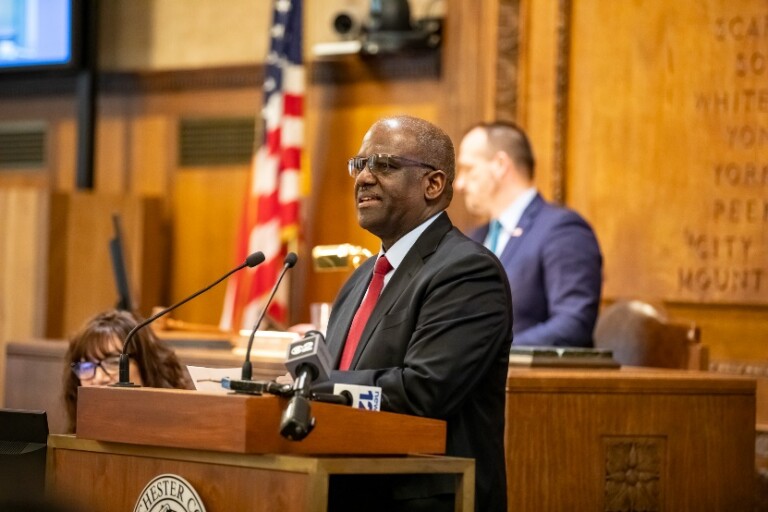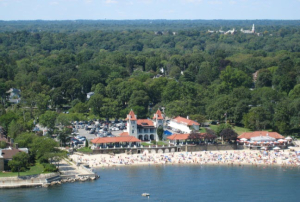Excoriated at Public Hearing, Council Delays a Rye Building Moratorium

Rye City Council backed off a Rye building moratorium for larger developments after being excoriated by multiple speakers during a special meeting and public hearing on Tuesday evening. Many of the speakers were the folks you would expect – building owners, developers and their lawyers. But most damning were comments by the chair of the City’s own Planning Commission, Nick Everett.
“I have no problem with a moratorium for the purpose of reviewing land use policies and zoning regulations in the CBD [Central Business District] and specific multi family zones in relation to height, width and floor area,” said the typically reserved Everett.
He was clear he was speaking for himself only and not for the Planning Commission. “The document you are voting on tonight, however, wanders away from such clarity and clearly defined goals and is flawed in several ways.”
He then went on to disassemble the language of the moratorium, pointing out multiple instances of vague and ill defined terms. Further, he raised concerns of ensnaring both the Council and various projects in town in a process not well considered.
“The council has many responsibilities, and one of them is to maintain the reputation of Rye as a fair and judicious town in which to do business and invest,” said Everett. “I want to make that point specific. There are two projects here – on Purdy Street and School Street – which have gone through all land use boards, have even paid for their building permits. The City has probably cashed those checks, 1000s of dollars and months spent, and you’re suddenly going to pull the rug out from them and make them go through a waiver process? That does not lead to a good reputation for the City of Rye. The moratorium should be for new applications, not projects that have already started the review process. It also needs tighter definitions and concise explanations of its scope.”
The CEO of the Westchester County Association, Michael N. Romita, was the first public speaker. The moratorium, as contemplated “sends a terrible message to those who would invest in strengthening the community. Appeals processes such as those contemplated as a trap door [are] cold comfort and can be deeply flawed,” said Romita.
Like Everett, he pointed out the vagaries of the language used, and pointed to a process where previously granted approvals might be re-litigated. It was unclear if anyone locally in Rye facilitated Romita’s appearance.
Joe Lorono of Lorono Construction, a prolific homebuilder, spoke about his 6 School Street project and lawyer Jonathan Kraut of Harfenist Kraut & Perlstein LLP spoke about projects at 147 and 151 Purchase Avenue and 16 Wappanocca. More than the current projects, both men invoked their lifelong residency in Rye as a demonstration of their interest in doing the right thing.
Kraut spent several minutes wondering out loud why the moratorium was put onto the last City Council meeting as an unscheduled last minute item, and why it had warranted a quickly scheduled special meeting. “I think it’s a fair question for the council to ask itself, how is it that professionals that are engaged [in real estate development] didn’t even know about this? How did it come up?”
Steven Wrabel, a partner at law firm McCullough, Goldberger & Staudt who has been active on any number projects in Rye, spoke about the existing project at the old Town Dock site at 11-15 Purdy Avenue that has come under some criticism. He went through the various concessions made by the developers during the approval process, stating “it’s our hope and our belief that the council did not enter this thinking we’re going to change the rules on applicants that have gone through the process” but said more clarity needed to be brought to any moratorium.
Wrabel then took it up a notch and said the moratorium as written was, in his belief, a violation of case law that requires a referral to Westchester County Planning. Rye’s Corporation Counsel Kristen Wilson disagreed with his assessment.
The Council had a brief discussion about further focusing and narrowing the moratorium before deciding to go into executive (closed) session to consult with Counsel Wilson. After some time, Rye City Council returned and quickly adjourned the public hearing until Wednesday, February 12th.
“Thanks everybody for coming,” said Mayor Josh Cohn as he closed the council meeting. “We listened, we learned, thank you.”




